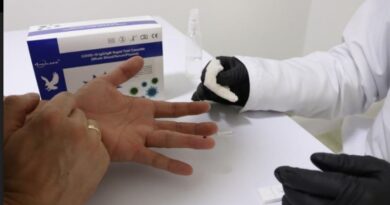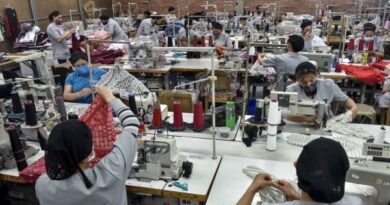Tesco asks staff to clean shelves, floors and loos
 Image copyright Getty Images
Image copyright Getty Images Retail staff will be asked to take on cleaning duties at Tesco’s smaller stores after the chain ended contract cleaning services for those outlets.
Shop workers will be expected to wipe shelves and fridges, mop floors and clean staff toilet facilities.
They will be given training and extra time to complete the extra duties.
Tesco said the cleanliness of its stores had «never been more important», as the pandemic transforms the way UK grocers do business.
«Following a successful trial we have found that giving our stores more ownership and control over their cleaning results in better and more consistent standards,» a spokesperson said.
Tesco will bring cleaning in-house in its 1,920 Express stores and convenience Metro stores from 24 August. More hours would be given to cleaning in stores as a result of this change, Tesco said.
While retail staff would be responsible for most cleaning duties around the stores, the firm said more «specialist tasks» such as pressure washing and cleaning high signs outside would still be completed by third party suppliers.
It is understood the decision was not related to saving costs.
Hygiene risk?
UK supermarkets saw a big increase in sales between March and June as consumers stayed – and ate – at home to help contain the coronavirus. However retailers have had to reconfigure shop layouts and introduce new hygiene measures and protective equipment to protect staff and customers.
On social media commentators expressed concern that Tesco staff would be forced to take on a role they hadn’t expected and that it might compromise hygiene in stores.
Tesco said the work would be split between colleagues but that no-one would be forced to undertake a role they didn’t want to.
Do I have to?
If your boss asks you to clean the office or the toilets, can you say «no»?
Work contracts usually say employees can be asked to undertake «other duties» outside their normal role, according to the employment advice body Acas. Refusing to follow instructions could amount to a breach of contract.
«There is an expectation that employees should carry out reasonable requests from their employer,» said Tom Neil, senior adviser at Acas.
«So even if cleaning or other duties are not explicitly included in their contract, unless it is clearly unreasonable or the employee is ill-equipped to be able to complete the task, they should carry out the request. If a reasonable request was refused, it could result in disciplinary action.»
You can dispute with your employer what counts as «reasonable» and that may depend on what role you’ve been employed for in the first place. What is reasonable for bar staff and security personnel may be unreasonable for banking analysts and barristers.
Some online commentators suggest it has become fairly common to ask staff in workplaces and schools to undertake some cleaning duties to allow more frequent cleaning to minimise the spread of the virus.
On the parenting site Mumsnet members said in other workplaces they had been asked to clean desks, meeting rooms, and toilets after their own use. Some said they’d been asked to use bleach and that managers had drawn up cleaning rotas.
One Mumsnet member said staff should object to cleaning requests: «I don’t think it’s a good use of professional staff time to be doing so, and would expect people to be pushing back.
«Professional cleaning is a skill (to do it quickly and effectively) and a genuinely viable business needs to recognise that – not some quick wipe down from someone who’s unwilling and not best placed to be doing it.»
Another Mumsnet member said: «We have to clean the office, kitchen, toilets and public areas twice a day so there isn’t much time left for actual work….Our cleaners were told they were no longer required!»


